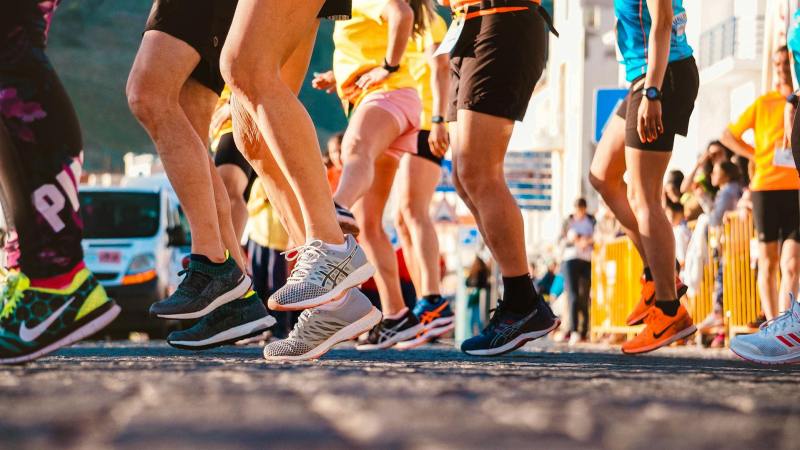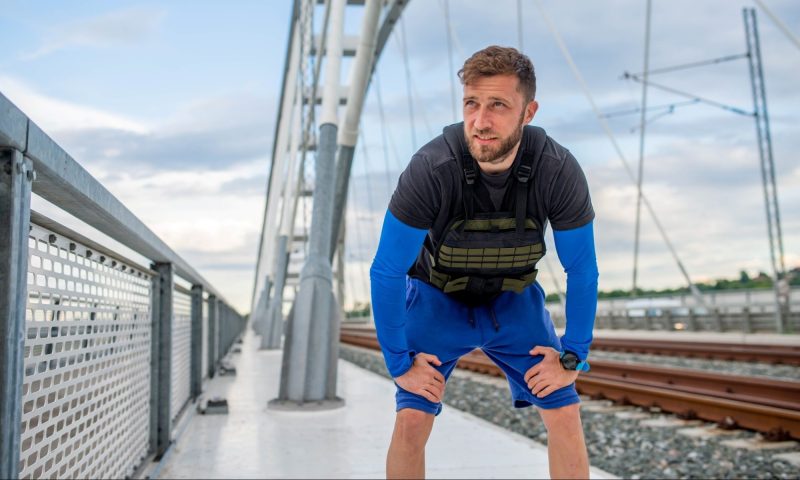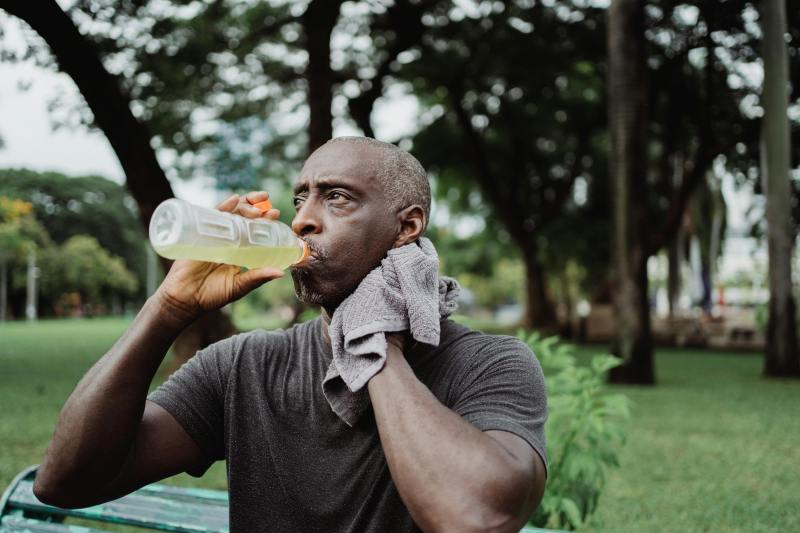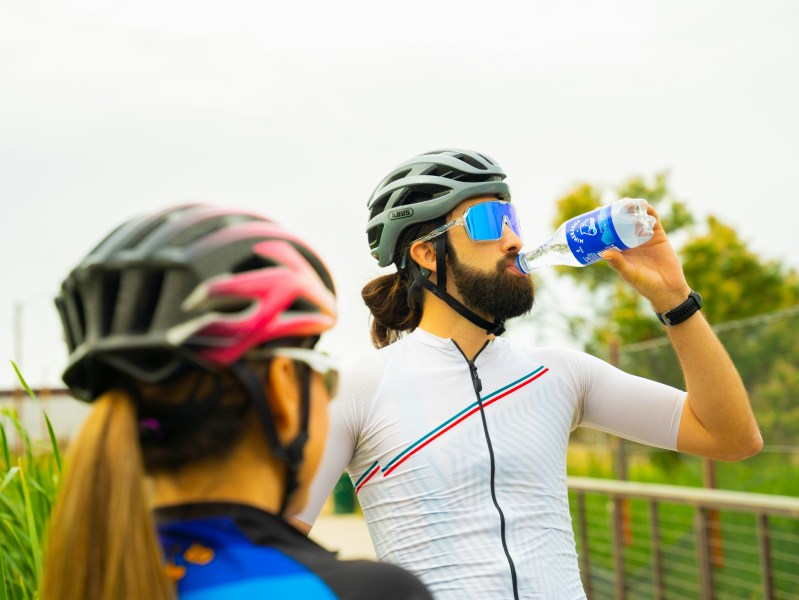As certain forms of exercise, like running and hybrid training, are gaining popularity, the topic of electrolytes has become a concern for many active people. Nutrition has always been a primary focus for those who work out, but people are starting to realize that they need to focus on more than just their protein goals. As a fitness enthusiast, I have also started to turn my attention to electrolytes as my outdoor runs leave me feeling fatigued.
So, you know you probably should be taking electrolytes, but is it better to take electrolytes before or after workout sessions? Keep reading to find out!
What happens when you take electrolytes before vs. after a workout?

Taking electrolytes before a workout helps prepare your body by maintaining optimal hydration and balancing essential minerals like sodium, potassium, and magnesium. This supports muscle function, nerve signaling, and fluid balance, reducing the risk of cramps and fatigue during exercise. Pre-workout electrolyte intake can improve your endurance and performance, especially if you are engaging in intense or prolonged activities where sweating leads to mineral loss.
After a workout, electrolyte replenishment focuses on recovery. Sweating causes significant loss of electrolytes, and replacing them post-exercise helps restore fluid balance, prevent dehydration, and reduce muscle soreness or cramps. It also supports faster recovery by aiding muscle repair and maintaining energy levels.
So, technically, you can take your electrolytes before or after your workouts and reap the benefits. Both timing strategies are important: pre-workout electrolytes prime your body for activity, while post-workout intake helps restore what was lost. For best results, consider the duration and intensity of your exercise, personal sweat rate, and environmental conditions to tailor your electrolyte intake before and after workouts.
How do electrolytes support exercise performance?

An NIH study shares, “Fluids and electrolytes (sodium) are consumed by athletes, or recommended to athletes, for a number of reasons, before, during, and after exercise. These reasons are generally to sustain total body water, as deficits (hypohydration) will increase cardiovascular and thermal strain and degrade aerobic performance. Vigorous exercise and warm/hot weather induce sweat production, which contains both water and electrolytes.”
Electrolytes are vital for exercise performance because they regulate the body’s fluid balance and electrical activity within muscles and nerves. During physical activity, electrolytes like sodium, potassium, calcium, and magnesium help transmit nerve impulses that trigger muscle contractions. Without adequate electrolytes, muscles may cramp, weaken, or fatigue more quickly.
They also maintain hydration by controlling how water moves in and out of cells. Proper hydration keeps blood volume stable, ensuring efficient delivery of oxygen and nutrients to working muscles. This helps sustain endurance and prevents dizziness or lightheadedness.
Additionally, electrolytes support the heart’s function by maintaining a steady heartbeat during exercise, which is crucial for overall stamina and performance. When electrolyte levels drop due to sweating, these processes can be disrupted, leading to decreased strength, slower reaction times, and early fatigue. Supplementing electrolytes helps keep these systems running smoothly, allowing athletes to perform at their best.
Signs you need electrolyte supplementation

Recognizing when your body needs electrolyte supplementation is key to maintaining peak performance and avoiding dehydration. Common signs include muscle cramps, which often result from low levels of potassium, magnesium, or calcium. Feeling unusually fatigued or weak during workouts can also indicate an electrolyte imbalance, as these minerals are essential for energy production and muscle function.
Other symptoms include dizziness, headaches, and irregular heartbeat, which may signal sodium or potassium deficiencies affecting your nervous and cardiovascular systems. Excessive thirst and dark-colored urine can indicate dehydration, suggesting a need for fluid and electrolyte replacement.
If you notice frequent muscle twitching or difficulty concentrating, these too may be signs that your electrolytes are out of balance. If you are someone who sweats heavily, exercises in hot conditions, or follows a restrictive diet, you should be especially mindful. Supplementing electrolytes at these times can help restore balance, prevent cramping, and improve overall hydration and performance.
Tips for implementing electrolytes into your routine

- Choose quality supplements: Look for products with balanced amounts of key electrolytes—sodium, potassium, magnesium, and calcium. Avoid those with excessive sugar or artificial additives.
- Match your needs: Select supplements based on your activity level, sweat rate, and diet. If you exercise intensely or in hot weather, higher electrolyte content may be necessary.
- Stay hydrated: Always drink water alongside electrolytes to maximize absorption and prevent imbalances.
- Start slow: Introduce electrolytes gradually to gauge how your body responds and avoid stomach upset.
- Use natural sources: Incorporate electrolyte-rich foods like bananas, spinach, and nuts for a balanced approach.
Frequently asked questions

Is it OK to drink electrolytes every day?
Yes, drinking electrolytes daily can be safe and beneficial, especially for active men or those in hot climates. However, consuming too many electrolytes, particularly sodium, may cause imbalances. It’s best to balance intake with your diet and hydration needs, and consult a healthcare provider if you are unsure.
How quickly do electrolytes work?
Electrolytes begin working almost immediately after consumption by replenishing essential minerals that regulate hydration, nerve function, and muscle contractions. Effects like improved hydration and reduced cramping can be felt within minutes to an hour, depending on activity level and individual needs. Consistent intake supports sustained performance.
Should I drink electrolytes quickly or slowly?
It’s best to drink electrolytes slowly to allow your body to absorb them efficiently and avoid stomach discomfort. Sipping over time helps maintain steady hydration and electrolyte balance, especially during or after intense workouts. Drinking too quickly can lead to nausea or imbalance, so pacing is important.




